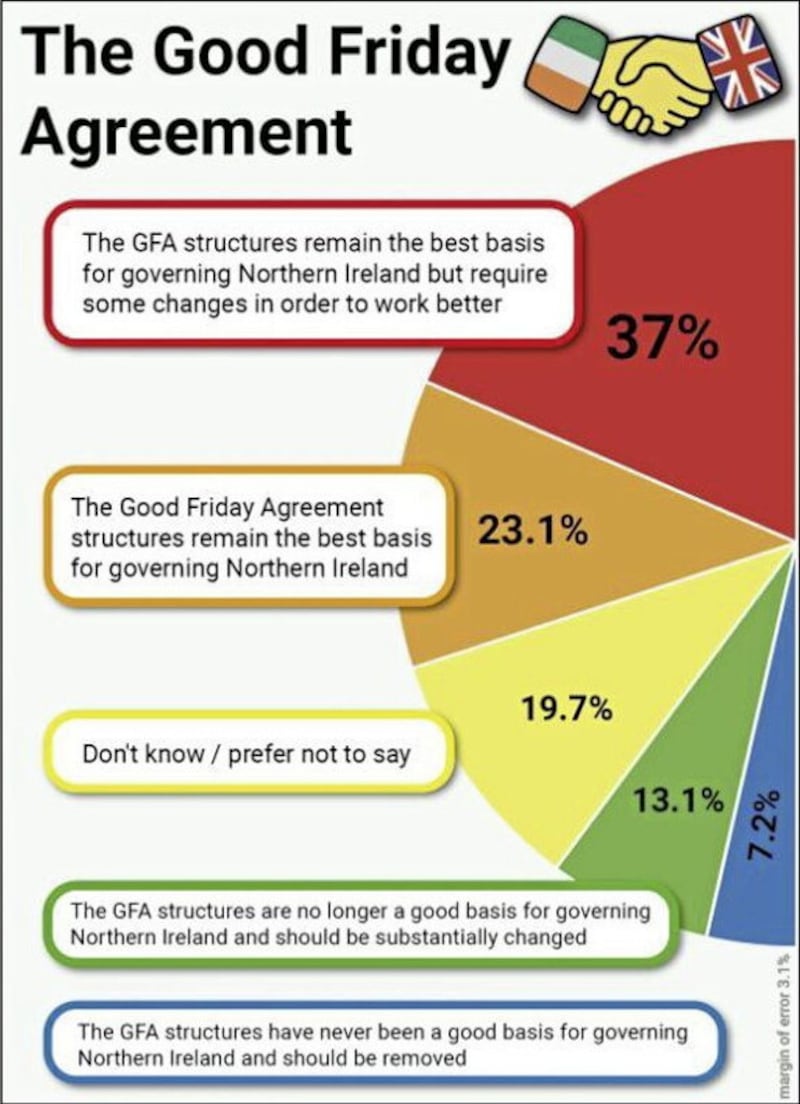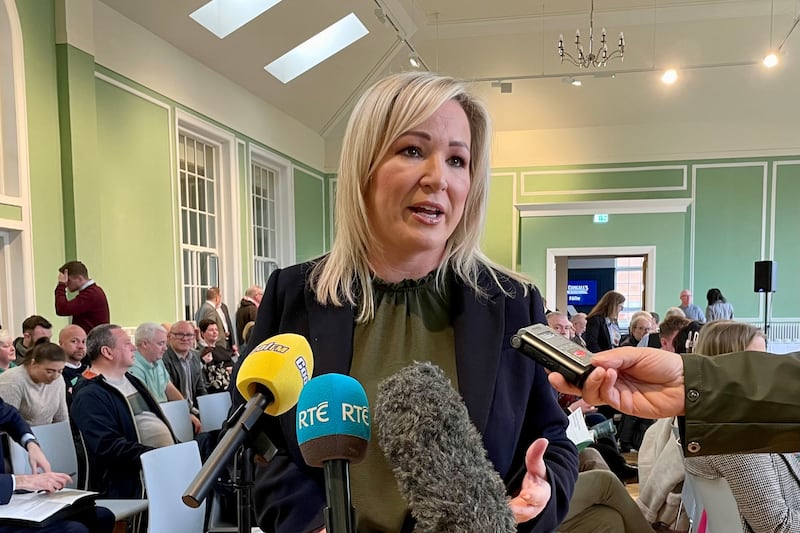A MAJORITY of voters believe the Good Friday Agreement remains the best basis for governing Northern Ireland, with nationalists especially supportive of the 1998 peace accord.
Supporters of Stormont's main parties tend to take a positive view of the agreement but most believe the political structures that emerged in its aftermath require urgent reform.
The latest polling from The Irish News-Institute of Irish Studies-University of Liverpool shows that 23 per cent of the electorate give the Good Friday Agreement their unqualified support.
A further 37 per cent of those questioned also back the accord but believe it would work better if reformed.
Read More
- Opinion poll: Stormont's 'big three' consolidate dominance of the assembly
- Analysis: Big party support holds up but voters want action from restored executive
- Cost of living and NHS reform identified as major priorities for restored Stormont
- Dr Sean Haughey – We need to talk about restoring and reforming devolution
- Dr David McCann – The three-party state is here to stay
The joint 60 per cent of voters backing the agreement is three times greater than those opposing it, or those who are ambivalent.
Some 13.1 per cent believe the structures agreed in 1998 are no longer a good basis for regional government and should be substantially changed. Less then one-in-ten (7.2 per cent) maintain that the agreement's structures have never been a good basis for government and should be removed.
Some 19.7 per cent of respondents 'don't know' or prefer not to say.

In terms of community background, support for the agreement, qualified or otherwise, is greatest among nationalists at 67.2 per cent. A majority of those from a unionist background (57.5 per cent) back the agreement in some form, while 58.2 per cent of others are also supportive of the accord.
Those who have lost faith in devolution and believe the structures require substantial change are greatest among the others (15.3 per cent), followed by nationalists (12.3 per cent) and unionists (11.6 per cent).
Outright opposition to the agreement that created the Stormont institutions is greatest among unionists 14.8 per cent, while only 3.3 per cent of nationalists and 3.5 per cent of others reject the accord as a basis for regional government.
In terms of party supporters, SDLP voters are the agreement's strongest backers (76.5 per cent), followed by Alliance (71.9 per cent) and Sinn Féin (68.7 per cent).
Some 67.6 per cent of Ulster Unionist voters back the agreement, compared to 53.8 per cent of their DUP counterparts.
Notably, only around half (50.1 per cent) of TUV voters reject the Good Friday Agreement as the basis for government.
Dr Sean Haughey at the University of Liverpool said it was clear voters continue to believe the Good Friday Agreement represents the "best basis" for governing Northern Ireland.
"The data reveals that nearly a quarter of voters support the agreement's structures as they are and when added to the 37 per cent who advocate some changes, it shows that a majority are broadly positive about the structures 25 years on. One-in-five voters believe the agreement strucutres do not provide a good basis for governing Northern Ireland, so there is clearly some opposition, but this is a minority view," he said.
"When the figures are broken down by community background, it also shows that the agreement structures command cross community support, with majorities within nationalism, unionism, and others believing they provide the best basis for governing Northern Ireland in their current form or with some changes."
:: Polling was carried out between March 3-14 by and has a margin or error of +/- 3.1 per cent.







